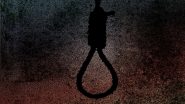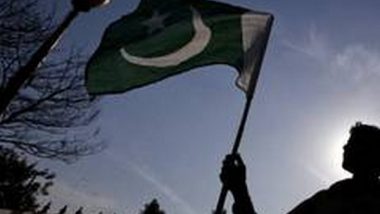Islamabad [Pakistan], October 07 (ANI): The Human Rights Commission of Pakistan (HRCP) has voiced serious concerns regarding the government's recent actions against Pakistan Tehreek-e-Insaf (PTI) supporters and the rise in violence during protests.
It demanded an "immediate and impartial inquiry" into the circumstances that allegedly resulted in severe injuries to a PTI supporter Syed Mustafain Kazmi, while in custody.
In a post on X, the HRCP stated, "HRCP demands an immediate and impartial inquiry into the circumstances that allegedly led to severe injuries to PTI supporter Syed Mustafain Kazmi while in police custody. We are equally shocked by the death of police officer Hameed Shah in unwarranted violence during the recent PTI-led protests. This normalization of violence must end immediately."
The HRCP's statement underscores the critical situation faced by political activists in Pakistan, particularly in light of the government's decision to ban the Pashtun Tahafuz Movement (PTM).
Earlier, the commission condemned this move as "neither transparent nor warranted," emphasising that the PTM has consistently advocated for rights through peaceful means and within the constitutional framework.
The HRCP called for the withdrawal of the proscription, insisting that the PTM should be allowed to continue its non-violent advocacy. Additionally, the HRCP criticised the ongoing detention of former parliamentarian Ali Wazir, urging the government to release him unconditionally.
HRCP said, "We also oppose former parliamentarian Ali Wazir's continued detention and urge the government to release him unconditionally."
The recent ban on PTM has intensified the ongoing tension between the movement and the government, reflecting deeper issues surrounding Pashtun rights and state authority in Pakistan.
The PTM, which advocates for the rights of the Pashtun community and seeks to address grievances like enforced disappearances and military operations in tribal areas, has faced increasing restrictions on its activities.
Local authorities have imposed bans on protests and gatherings, often citing security concerns and potential unrest. This has led to the detention of several PTM leaders and activists, further fueling allegations of human rights violations and suppression of dissent.
Critics, including human rights organisations, argue that these measures infringe upon fundamental rights to free expression and assembly, underscoring the ongoing struggle for political recognition and justice within the Pashtun community.
As the political landscape in Pakistan continues to evolve, the PTM's ability to operate and voice its concerns remains under significant threat, creating a complex scenario of resistance and repression. (ANI)
(This is an unedited and auto-generated story from Syndicated News feed, LatestLY Staff may not have modified or edited the content body)













 Quickly
Quickly
















